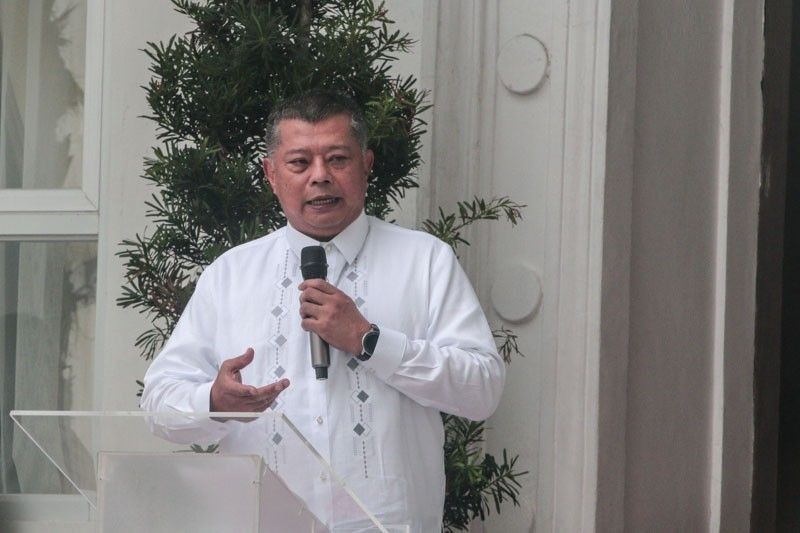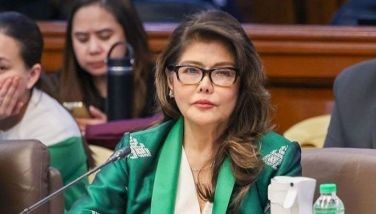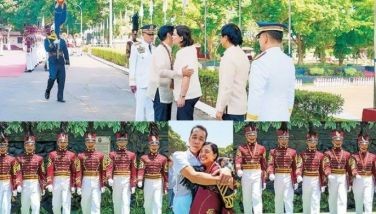Philippines reaffirms ‘continuing’ commitment to human rights

MANILA, Philippines — The Philippines has reaffirmed its “solemn” and “continuing” commitment to human rights for all, but rejects any disturbance to its bureaucratic structures while the government embarks on justice and prison reforms to fix its criminal justice system.
Justice Secretary Jesus Crispin Remulla told the United Nations Human Rights Council (UNHRC) on Wednesday that the Philippines was pursuing a comprehensive reform agenda to ensure that the rule of law prevailed, and that every Filipino was afforded fair administration of justice.
Remulla addressed the Human Rights Council 52nd Regular Session in Geneva, Switzerland and enumerated the Philippines’ progress in human rights reforms under the Marcos administration.
He said the case build-up rule had been drafted, which requires a higher level of proof for preliminary investigations in criminal cases, and closer cooperation between prosecutors and law enforcement.
To decongest penal institutions, he said the monthly releases of an average of 500 inmates had been orchestrated, noting that new guidelines had been issued which significantly lowered the bail bond for indigents accused of crimes and for the dismissal of cases with no reasonable certainty of convictions pending before the courts.
“The Philippines continues its tradition of open, constructive, and active engagement on human rights with the UN and international stakeholders, including civil society,” stressed Remulla.
“There are a lot challenges in our mission to reform our jail and prison system in the Philippines, and our unique situation drives us to find new ways and outside-the-box- solutions to hurdle them,” he added.
Upon the Philippine government’s invitation, the special rapporteur on extrajudicial, summary or arbitrary executions and his team visited the Philippines last month to initiate an immediate program for capacity building of doctors.
“Come July, after their training, this group would become mentors to cascade down their knowledge in order to have forensic experts in all regions of the country,” the Council said.
Remulla draws line vs ICC
However, Remulla was firm on stating that the Philippines “rejects” the International Criminal Court (ICC)’s drug war investigation into alleged crimes against humanity during the administration of former president Rodrigo Duterte.
The ICC earlier cleared the way for its prosecutors to resume the investigation into the drug war killings, a decision currently under appeal with the ICC’s Appeals Chamber.
It was anticipated that the UNHRC will try to convince the Philippine delegation to allow it, but Remulla said: “We draw the line, as any sovereign state must, when an international institution overreaches and departs from the boundaries of its creation. Upon this context, the Philippine government rejects the ICC’s decision to resume investigations over alleged crimes committed during the anti-illegal drug campaign.”
Remulla has been vocal about not letting the ICC conduct its probe on Philippine soil, viewing the whole process as an insult and act of attempting to “take over” the country’s functioning justice system.
Upholding sovereignty, the complementarity principle in international law, and the ICC’s lack of jurisdiction over the Philippines have been key arguments of the government’s top litigators in stopping the ICC probe.
Remulla did assure the UNHRC that there was no culture of impunity in the Philippines, stressing that its own investigative and human rights mechanisms would be enough to address extrajudicial killings and other human rights violations being alleged and no longer needs the help of external bodies like the ICC.
“National sovereignty and international solidarity, go hand in hand, complement each other and create the fertile ground in which human rights can truly flourish. Let us uphold sovereignty and harness solidarity to promote and protect human rights and dignity for all,” he said.
“We have a working justice system that is a cornerstone of our accountability mechanism. Our prosecutors and courts are ready, able and willing to prosecute anyone if the evidence so warrants,” he added.
Last year, the Philippines held constructive dialogues with multiple human rights committees and participated in an enhanced interactive dialogue with the Council.
“The Philippines had accepted 215 out of 289 recommendations received at the Universal Periodic Review, assuring that extrajudicial killings had never been, and would never be a state policy,” Remulla said.
- Latest
- Trending

























